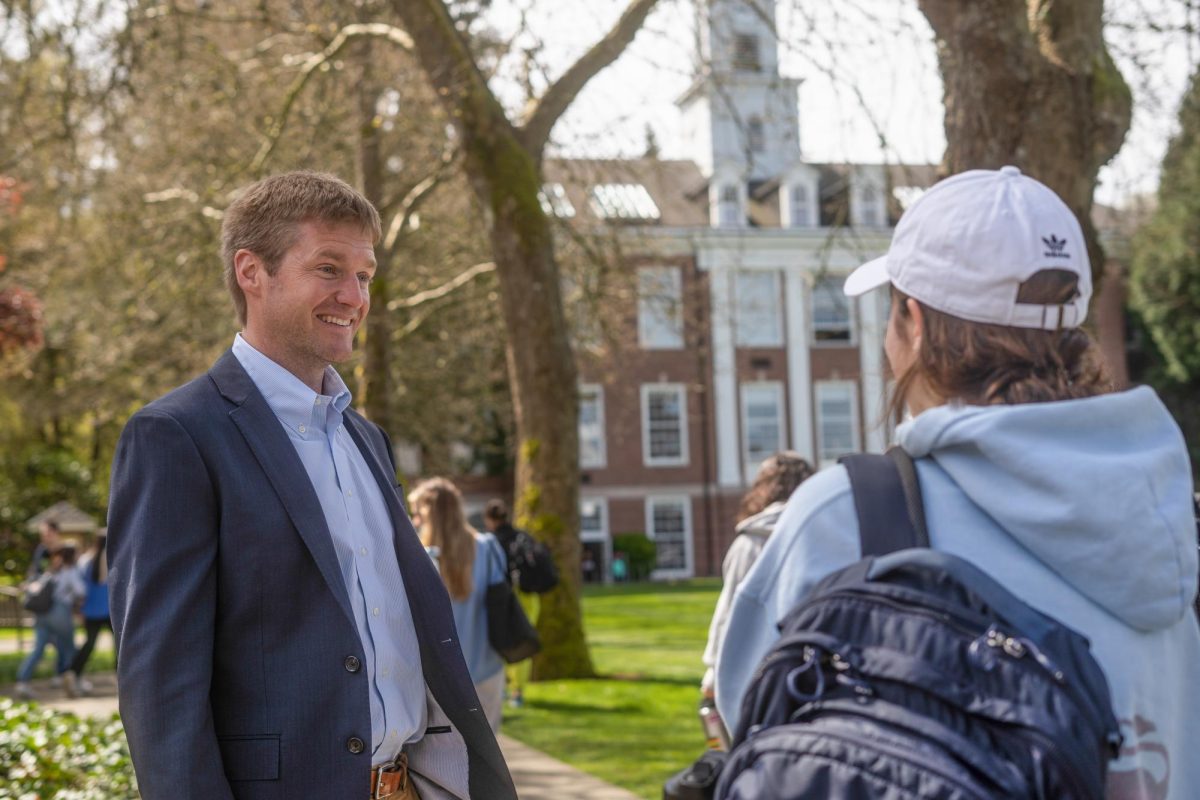Starting fall semester, the administration has announced that all essays for English, history, and language classes may be written with ChatGPT. While students are still allowed to write “by hand,” last month’s trial period concluded with almost 88% taking advantage of the policy for at least one assignment, outing the remaining 12% as try-hard teacher’s pets who would do well to close their Google docs and experience the cool breeze of an open field by rosy-fingered dawn or their computer fans as they boot up Grand Theft Auto V.
The decision is one of many exciting developments to come out of this fall’s strategic planning discussions. In keeping with the pathway of “technology and innovation,” the administration aims to embrace AI technologies rather than ignoring them or, even more laughably, trying to mitigate their effects. “We can’t control what students do on their computers,” stated the email sent out last month, cleanly absolving the administration of any and all responsibility. At the subsequent assembly, Mr. Boccuzzi elaborated: “With all of this new technology coming out, it’s like, Instagram? JPEGs? ChatMP3? Sounds like fun!”
One like-minded faculty member commented, “Listen, there’s nothing we can do. Chatbots can do our job, and you can bet that they can do your job. Your job is just to not know things, then pretend you know them for a week, then go back to not knowing them. Chatbots can do all that while sitting twice as quietly, and they don’t incessantly bother me about pushing back deadlines, leave full plates of food everywhere, plaster themselves plaintively against the locked doors when break has been over for six minutes already, or choose my whiteboards as the canvas for their unsettling surrealist art pieces … Actually, they might be the best students I’ve ever worked with. My question is, what are you still doing here? At least I’m earning a salary. At this point, we’re just cutting our losses.” The faculty member asked to remain anonymous for undisclosed reasons.
While some concerns have been raised over the new policy, many students agree that writing with AI feels more like a collaborative process than plagiarism. I join one junior in the library, where she sits with a book to her left and a laptop open to ChatGPT on her right. “It’s not so much about learning to write some formulaic five-paragraph essay as learning to ask the right questions,” she explains diplomatically. “For example, ‘Analyze one significant motif in “The Great Gatsby.” (3–4 pages) (MLA formatted)’ That one really makes you think.” Returning to her work, she opens the book to where her bookmark is tucked in at page 13. The essay is due next period.
“First we had the wheel, then we had the calculator, then we had ChatGPT,” declaims another student, elegantly paring 6000 years of technology down to the essentials. We’re nearing the end of our first-period calc class, but he’s confident he can fill his empty document before 9:50. “Dragging our stuff around distracted us from introspection and creativity. Menial calculations distracted us from higher level math. Writing just distracts us from … ” The student trails off, apparently distracted by something in another tab.
For some, ChatGPT is much more than a tool. “Tatler” poll respondents variously compared the program to “a friend who helps me peer edit,” “a friend who I’m paying to write my essay for me,” “a friendly homunculus,” or “my dog … but instead of eating my homework, it’s sort of retching it back up half-chewed.” Still others have had less positive experiences. One wrote, “Last week I got this calendar notification telling me I had to meet with Mr. Salter, but I couldn’t even remember what we were meant to be meeting about. Lately, I’ve mostly been getting ChatGPT to write most of my emails. Then when I showed up, he said that not only did Moldova never send auxiliaries during the Civil War, but it wasn’t even an independent state yet. I had to rewrite my whole research paper. How was I supposed to know?”
While there remain some wrinkles to be ironed out in the chatbot’s objective grip on reality, the risk to students is ever decreasing. With 63% of anonymously polled teachers admitting to AI-generating their midterm comments, it’s unclear whether some of these essays, from design to dustbin, ever encounter the light of a human eye. And maybe that’s a good thing. After all, who are these assignments really benefiting—students, or the capitalist machine that feeds on five-paragraph student-written analytical essays like these?
Since switching to ChatGPT, the majority of Lakesiders report feeling happier, healthier, and more confident in their work than ever. According to the updated Wellness curriculum, “The resilience mindset comes from being able to hear feedback, absorb it, paste it into the text box, and click ‘regenerate.’” So maybe it’s time to step back and ask ourselves what’s really important. Do we want to be made into automata bred and raised for mere creativity and critical thought? Or is there something more to life? Whether you choose to welcome the future or cling to the sinking ship of the past like Ahab vanishing into his watery grave, as students close out this year with AI-written final papers and seniors go forth with AI-written college essays, it’s needless to say that the change is here to stay.


